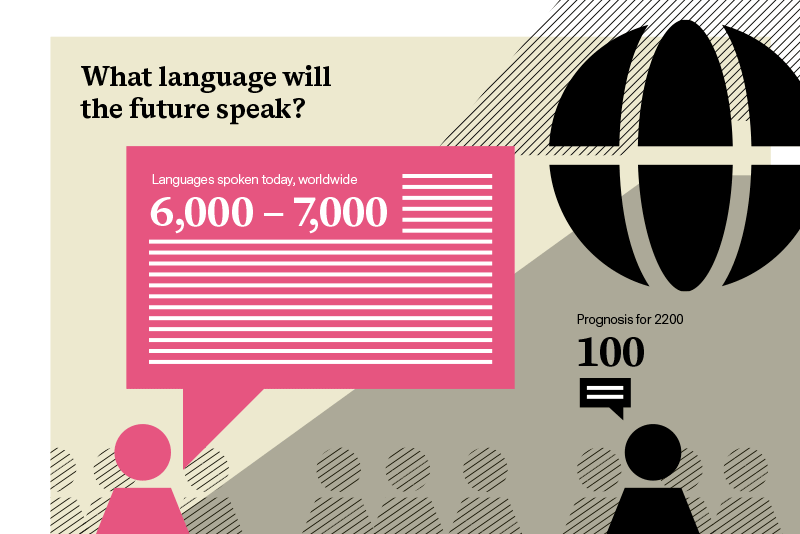Do you speak code?
Language is the primordial code of human communication and makes man one of the most successful living beings on earth. But has digitalization made us forget how to speak?
Whenever you chat, write an e-mail, withdraw money, go shopping or surf the Internet - they are always there: Codes. Genetic codes, language, writing, barcodes, or program codes The list of different types of code goes on and on.
What makes codes so important? Whether it's interpersonal communication or digitized services, without the right key – the code – you won't get anywhere. Codes in all their variations have a structuring effect on our social order.
But some of them currently seem to confuse this order rather than structure it. This could be due to the profound changes ushered in by digitalization. Behind them are codes in the form of programming languages. But these languages are not part of most people’s vocabulary.
Are we losing the power of speech?
Are the lack of language skills the reason why today's fears for the future seem to outweigh the progress achieved through digitalization? “The vast majority of the world's population does not speak the language that is used to negotiate the future of our economy and society,” says Miriam Meckel, editor of the German magazine WirtschaftsWoche, in an article. “Only those who are able to code belong to today's literate population,” she explains.

A frightening realization, because language is the primordial code of human communication. “Inspiración, inspiratio, ispirazione” – thanks to the same alphabet and similar phonetics, you can guess that it is about inspiration. Would you also come to the same conclusion when reading “01001001 01101110 01110011 01110000 01101001 01110010 01100001 01110100 01101001 01101111 01101110”? This is how inspiration is written in binary code.
Without combination, no understanding
So are we facing a loss of control over the most important of our forms of communication due to the programming languages? Well, languages can be learned. From this perspective, it might actually be possible to restore social order by acquiring additional language skills. It might make us more understanding, at least. But which programming language should we learn? Wikipedia lists over 100 languages for the initial letters A to D alone.
This agony of choice is symptomatic of the digital transformation. Many people find the multitude of possibilities, the complexity and also the speed of the digitally driven changes simply overwhelming. Maybe it's self-inflicted, because people haven’t dealt with the issue adequately. Digitalization has not yet necessarily arrived in our everyday lives. Despite certain fears, it is quite possible to live very well without programming knowledge and a deeper understanding
Should we take language classes anyway?
Codes are the central key for accessing our analog and, increasingly, the digital world. In order not to be denied access to the latter, it is important to remember more than just the access codes to bank accounts and online services. There’s no avoiding learning a new alphabet. Because if we lose our power of speech, we lose the facility to communicate and participate.

